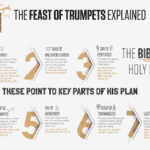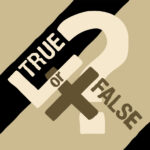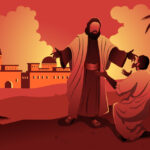Finding Encouragement in Day of Atonement Fasting truthsum.org
For many, the Day of Atonement is a challenging Holy Day. Fasting can be uncomfortable, even daunting, yet it carries profound encouragement for God’s people. It’s more than abstaining from food—it’s a tool for spiritual growth, physical renewal, and resilience in faith. God designed our bodies to respond powerfully to fasting. Studies show fasting triggers a kind of immune system “reset”, clearing damaged cells and…
The Feast of Trumpets: Warning and Hope truthsum.org
The Feast of Trumpets has always stirred a mixture of emotions in me. Growing up, some messages emphasized the sobering prophecies leading up to Christ’s return – wars, upheavals, and God’s judgment. We understood this to mean that even God’s people would face tribulation, and that nations of the West, including the U.S., would experience devastation. That brought the reality of this day very close…
The Feast of Trumpets: A Warning and a Hope youtu.be
The Feast of Trumpets is the fourth step in God’s plan of salvation, commanded in Leviticus 23:24 as a “memorial of blowing of trumpets.” In Scripture, trumpets announced war and destruction (Numbers 10) and the coronation of a king (1 Kings 1:34). Both meanings reveal the prophetic purpose of this day. First, it points to the coming Day of the Lord – a year-long period…
Beyond Clichés: Rediscovering Biblical Wisdom in a World of Catchy Sayings truthsum.org
Catchy sayings like “God will never give you more than you can handle” often circulate in Christian circles. They sound comforting, but they risk oversimplifying the rich and demanding call of discipleship. Scripture paints a deeper picture, describing believers as children, athletes, soldiers, servants, and members of God’s family. Jesus taught that entrance into His kingdom requires childlike humility – a readiness to trust and…
What Really Happens to the Wicked? truthsum.org
Many believe the wicked go to hell – a place of unending torment where fire burns forever. But does the Bible actually teach that? Scripture says God is love (1 John 4:8). Would a loving God torture people for eternity over a short lifetime of sin? Jesus said those who believe “should not perish but have everlasting life” (John 3:16). Perish means to die –…
The Day God Made for Us: Rediscovering the Sabbath truthsum.org
Before Israel, Sinai, or sin, God set apart a day: “Then God blessed the seventh day and sanctified it” (Genesis 2:3, NKJV). The Sabbath was woven into creation – not for one nation, but for all humanity (Mark 2:27). It is a gift, a sign of covenant, and a rhythm of rest pointing to God’s Kingdom (Exodus 31:13; Hebrews 4:9). Yet history shows a pattern…
Reasoning Over Blind Belief: Why It Matters truthsum.org
In today’s world, advice changes constantly. One day, eggs are bad; the next, they’re a superfood. The problem isn’t just conflicting information – it’s how quickly we accept what we’re told without thinking critically. This habit often extends beyond diet and lifestyle into faith itself. Many hold beliefs because they’ve been taught them since childhood or because respected leaders said so. But is that enough?…
A Comma, a Cross, and a Kingdom truthsum.org
When Jesus turned to the thief beside Him and said, “Truly, I say to you, today you will be with me in paradise” (Luke 23:43), it has long been read as proof that believers go directly to heaven at death. But could this hinge on nothing more than a translator’s comma? The earliest Greek manuscripts had no punctuation. Word-for-word, the verse reads: “Truly I say…
Is This Really the Only Day of Salvation? truthsum.org
For most Christians, the message is simple: accept Christ in this life or be lost forever. That belief has fueled centuries of evangelism and missionary work, driven by the fear that billions will never know salvation unless they are reached now. But is this really what the Bible teaches? Scripture suggests something far more hopeful. The apostle Peter wrote that God is “not willing that…
The Wisdom of God’s Law: Why Being Different Should Make People Ask Questions truthsum.org
Have you ever considered that one of the main purposes of God’s law was to make people ask questions? In Deuteronomy 4, Moses tells Israel that if they keep God’s commands, the surrounding nations will marvel: “Surely this great nation is a wise and understanding people” (Deut. 4:6). The law was never meant to be a cold checklist or a tool for self-righteousness. It was…
Righteous, Not Perfect: What the Bible Actually Says truthsum.org
Many Christians believe that being “righteous” means being sinless or morally perfect. As a result, they assume that no one can truly be righteous, except by having Christ’s righteousness imputed to them. But is that what Scripture actually teaches? The Bible paints a different picture – one of real people declared righteous not because they were flawless, but because they lived by faith. Noah, Abraham,…
The Ten Commandments: Loving God and Man in Every Word truthsum.org
When asked about the greatest commandment, Jesus highlighted two: love God and love your neighbor. Many view these as summaries of the Ten Commandments – often divided into two tables: the first for God, the second for people. But Jesus showed that every commandment speaks to both. The first commandment urges us to put God first, but when we place ambition or comfort above Him,…
Did God Change the Rules After the Flood? truthsum.org
Many assume that God introduced clean and unclean animal distinctions at Mount Sinai and that meat-eating began only after the flood. But Scripture tells a different story – one of continuity, not change. In Genesis 7:2, God tells Noah to bring seven pairs of every clean animal and one pair of every unclean. This proves the distinction already existed and that Noah understood it without…
Grace Redefined: A Return to Biblical Truth truthsum.org
This article explores how ancient Gnostic ideas reshaped the Christian understanding of grace—shifting it from a call to transformation into a license to remain unchanged. Discover what the Bible truly teaches about grace, obedience, and the hope of salvation in God’s Kingdom.
The Ideal Man – Donald Winchester vision.org
Many today are legitimately anxious about the future. Young men in particular see their chances for success, power and influence slipping away.
Five Myths About Grace – Kendrick Diaz lifehopeandtruth.com
Grace is one of the most recognized concepts in the Bible, but it’s also one of the most misunderstood.
Selective Obedience in Christianity: Legalism or Loyalty to God? truthsum.org
When Back to the Frontier premiered in July 2025 featuring a same-sex couple, Christian outrage erupted online – “promoting sin,” many said. But that raises an important question: why does modern Christianity loudly condemn some sins while ignoring or defending others that Scripture clearly calls out? Take the Sabbath. Say it’s still a commandment, and you’ll likely be told, “That was fulfilled – we’re under…
No Rest Day or Night: A Clue About the Mark of the Beast? truthsum.org
Revelation 14:11 warns of those who worship the beast and receive his mark: “They have no rest day nor night.” This verse has often been misused to teach eternal torment, yet Scripture consistently shows the fate of the wicked is death – not endless suffering (Romans 6:23, Malachi 4:1–3). This phrase may instead reveal a spiritual truth: those who reject God’s authority, including His Sabbath,…
Are We Polytheists? truthsum.org
Some claim that believing in both a divine Father and Son makes one a polytheist. But the Bible tells a different story. Scripture never teaches that Jesus was created. Instead, it reveals the Father and Son as distinct divine beings who have existed eternally, sharing one Spirit, one purpose, and one throne. The Hebrew word Elohim (God) is plural – hinting at divine family rather…























